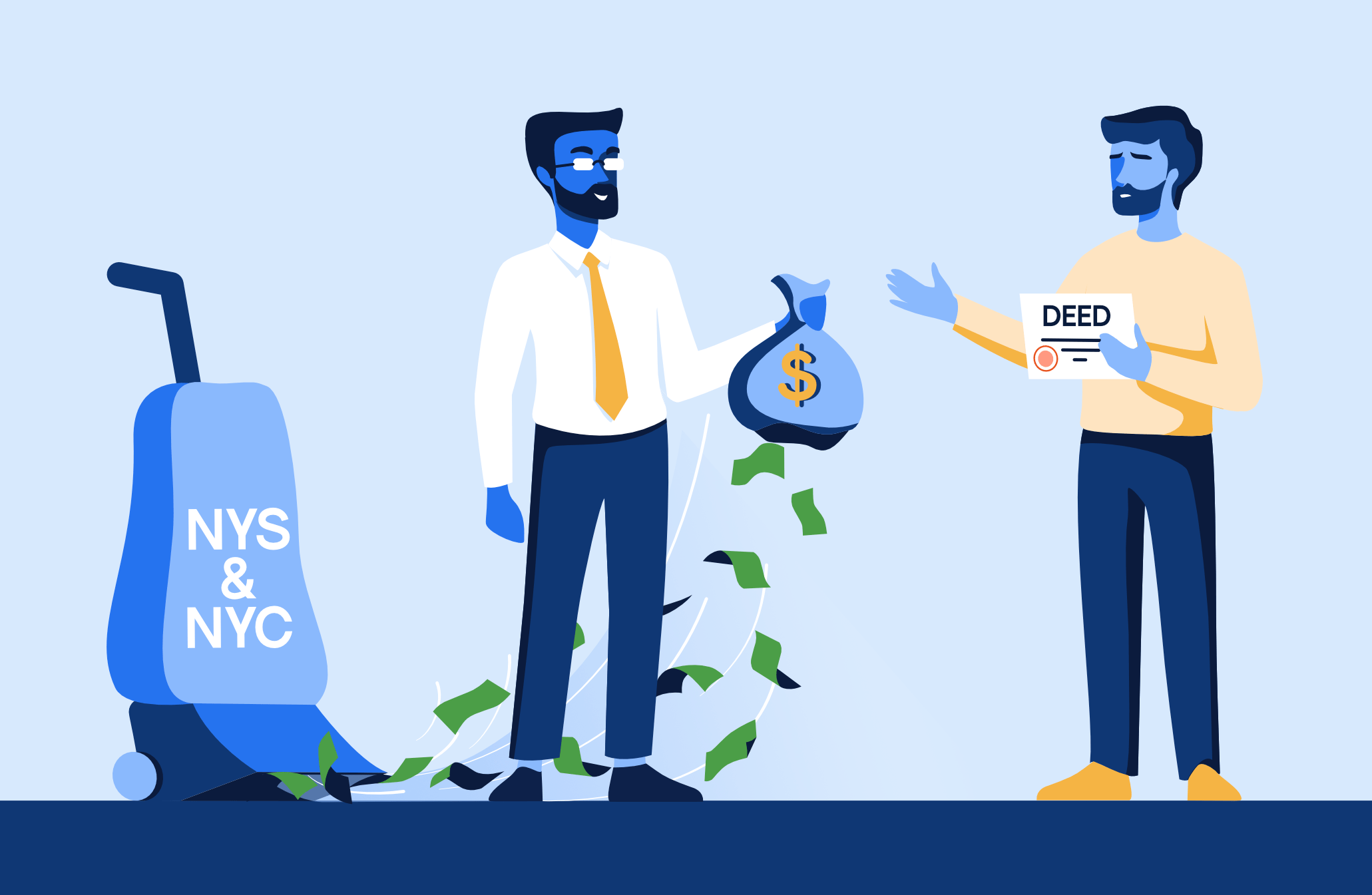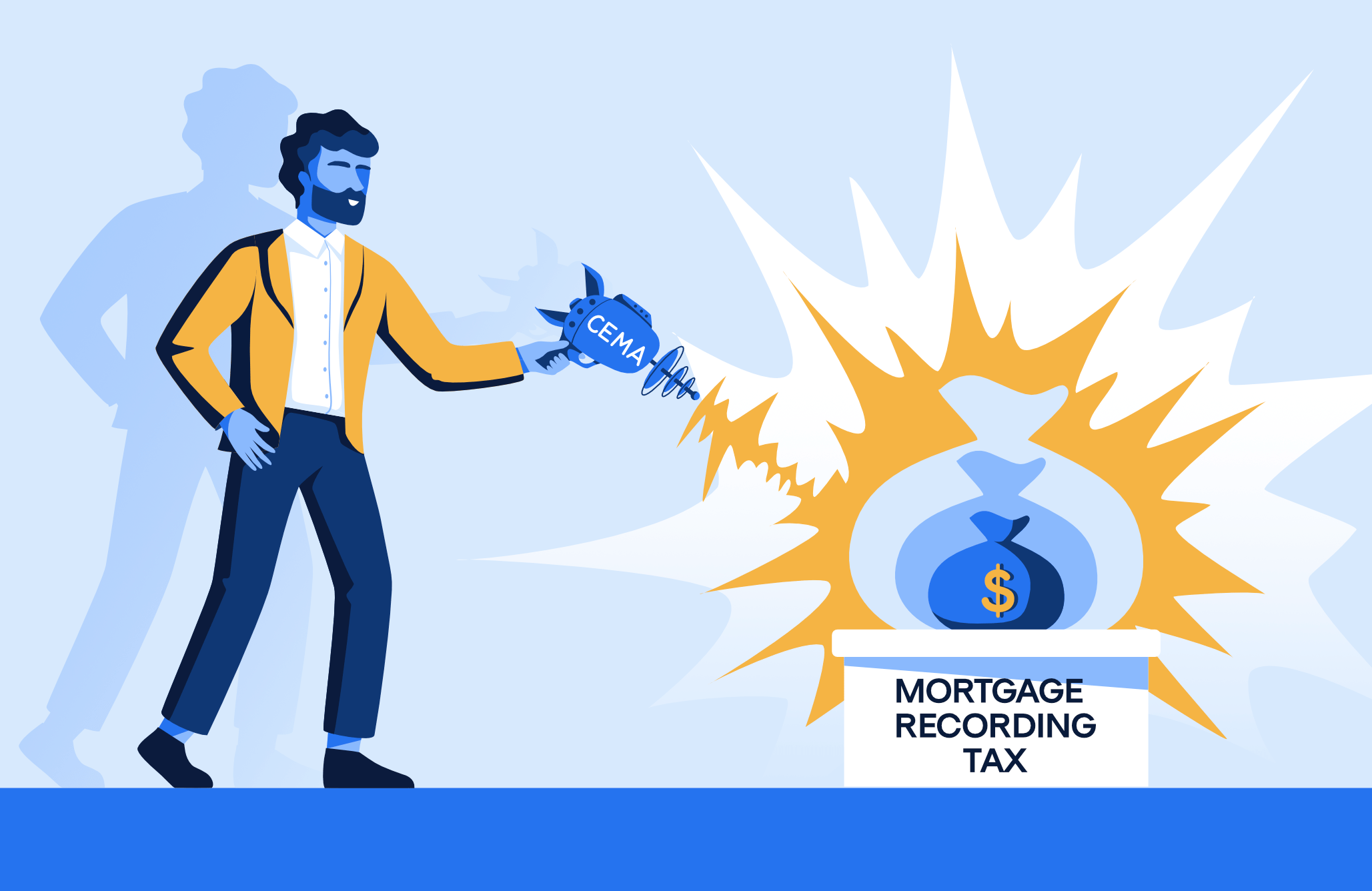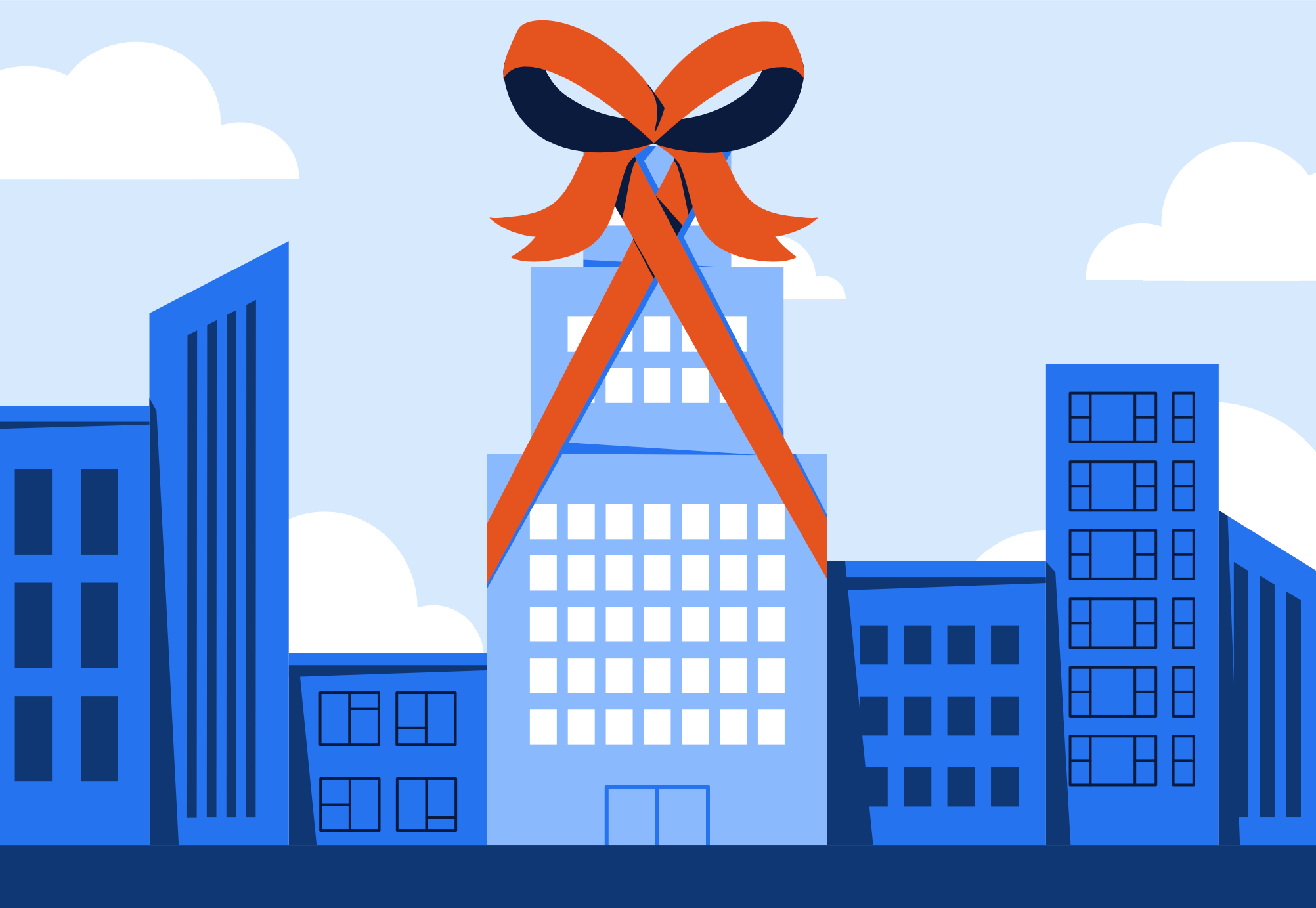Closing costs on a NYC apartment are significant so it's extremely important to understand which you'll be paying and how much they'll be so you can budget accordingly.
What Are Buyer Closing Costs?
Buyer closing costs are everything that gets tacked on after you agree on a price with the seller. It includes taxes, fees and services charged by the government, bank, management company, building, insurers and your attorney, among others - everybody gets a piece!
Different fees apply to different types of transactions. On the low end, you have an all-cash co-op under $1 million where closing costs can be just a few thousand dollars. On the high end, there's a new development condo with financing where closing costs are easily 5% of the purchase price.
It’s important to realize that most buyer closing costs are cash costs. You won’t be able to roll them into your mortgage. This can significantly increase the amount of cash that you need to bring to the table.
While we recommend all buyers read this post first, you can jump straight to estimating your closing costs using Yoreevo’s closing cost calculator.
Mansion Tax
The mansion tax is paid to New York State and is a simple percentage of the purchase price for any property that sells for at least $1 million. The rate goes up along with the purchase price.
| Purchase Price | Mansion Tax |
| $1 - 2 million | 1.00% |
| $2 - 3 million | 1.25% |
| $3 - 5 million | 1.50% |
| $5 - 10 million | 2.25% |
| $10 - 15 million | 3.25% |
| $15 - 20 million | 3.50% |
| $20 - 25 million | 3.75% |
| $25+ million | 3.90% |
There’s not much room to avoid the mansion tax. It applies to all types of real estate - co-ops, condos and townhouses. However, if you’re looking at an apartment just over the $1,000,000 threshold, you might be able to get back under it with a commission rebate as rebates are considered a reduction to the purchase price. Other than that, it's virtually impossible to avoid the mansion tax.
Mortgage Recording Tax
The mortgage recording tax applies when you take out a mortgage on a condo or a house. Co-ops are not subject to the tax because they are personal property (shares in the building), not real property. The easiest way to avoid the mortgage recording tax is to buy a co-op.
The amount of the tax is 1.8% if the mortgage is less than $500,000 and 1.925% if it is $500,000+ and is charged on the amount of the mortgage (not the purchase price). These rates after your lender pays 0.25%. NYC also throws in the first $30!
Broad strokes, if you're putting 20% down, your mortgage recording tax will be about 1.5% of the purchase price. For most buyers, this is their largest closing cost.
Aside from buying a co-op, you can potentially avoid some of the mortgage recording tax with a CEMA. You can find more details on CEMAs here.
Title Insurance
Title insurance is more or less required for condo and house purchases. For co-ops, it is not required and generally not purchased.
Pricing is regulated by the state but it usually costs between 0.4% and 0.5% of the purchase price. It protects you and your lender from historical claims on the property.
For example, say the seller renovated their kitchen but never paid their contractor. The contractor might file a construction lien on the property with New York State and now has a claim on the property. Theoretically, this would be discovered during due diligence but things happen - the lien wasn’t filed properly, the state lost it, your attorney missed it, etc.
Liens are filed against the property so if you close with one outstanding, it's your problem, not the seller's, but if you have title insurance, your insurer will take care of it.
Title insurance simply ensures that you’re buying the property and only the property. It isn't coming with any unexpected liabilities and if any are discovered, you’re covered.
A title insurance policy lasts as long as you own the property.

Attorney Fees
Given the magnitude of the items above, buyers will be happy to find out that their attorney will be one of their smaller closing costs.
Unlike most attorneys, real estate attorneys typically charge on a per transaction basis, not hourly. Whether your purchase is a breeze or contract negotiations drag out for weeks, the price is fixed.
Most real estate attorneys charge $2,500 to $3,500 per transaction.
When you’re choosing an attorney, it’s very important that regardless of price, they conduct thorough due diligence and look out for your best interests. Technically, every attorney should but Yoreevo has been involved in transactions where attorneys cut corners. It’s always best to ask a friend or your real estate broker if they can recommend an attorney who they have worked with before.
Purchase Application Fees
For this bucket, we're combining purchase application fees and financing fees.
When your condo or co-op application is submitted, the management company will charge fees to process it. Most applications will require a processing fee, credit check fee, financing fee and move-in fee. Before you make an offer on a property, you can request a copy of the purchase application so you know the exact fees but expect to pay around $2,000.
Your bank will also charge a similar set of fees for things like a general application fee, a credit check fee, the appraisal fee and the bank’s attorney fee. All in, plan on around $3,000 for financing fees.
Other Closing Costs?
Sometimes sellers will try to pass their closing costs on to you.
The only time this should not be a surprise is with new development where sellers expect you to pay the transfer taxes and other costs.
If a seller is asking you to pay something else like a flip tax, that's something that should have been disclosed from the start. Unscrupulous sellers and agents sometimes slip these into the deal sheet after an offer has been accepted. This is the equivalent to raising the price and should not be tolerated.
If you find yourself in such a situation, talk to your broker and attorney. They’ll be able to tell you if the seller is trying to pull a fast one.
Are Buyer Closing Costs Tax Deductible?
The short answer is no - most buyer closing costs are not deductible against income on your tax return. They can, however, be added to your cost basis and shield capital gains when you sell. Make sure to talk with your accountant to analyze your specific situation.
For most buyers, real estate will only affect their annual tax return via mortgage interest. A lot of buyers think property taxes are deductible but ever since changes in 2017, that is almost always incorrect.
How Can You Reduce NYC Buyer Closing Costs?
It’s pretty much impossible to avoid most closing costs but there are steps you can take to minimize them.
The easiest way to save on closing costs is to focus on co-ops. With a co-op, you’ll avoid the mortgage recording tax and title insurance. Right there, you’ve saved about 2% of the purchase price.
And while the government is not going to negotiate, everyone else might. Will your bank waive that application fee? Could your attorney take $250 off their fee? You won’t find out unless you ask. These improvements won’t move the needle but they’re small victories!
The most effective way to reduce your closing costs is to ask your real estate broker for a commission rebate. Most buyers are unaware that this is an option so even if you don’t work with Yoreevo (although we hope you do!), make sure to ask for a rebate. Buyer broker commissions are almost always 2.5% or 3% of the purchase price so even if you only get a small portion of that, it can offset a large chunk of your closing costs!

Buyer Closing Costs NYC - Condo Example
- Purchase Price – $2,000,000
- Amount Financed – 80%
- Mansion Tax – $25,000
- Mortgage Recording Tax – $30,770
- Title Insurance – $9,356
- Attorney – $3,000
- Financing Fees – $3,000
- Application & Misc Fees – $2,000
- Total Buyer Closing Costs – $73,126 (3.7% of the purchase price)
Buyer Closing Costs NYC - Co-op Example
- Purchase Price – $2,000,000
- Amount Financed – 80%
- Mansion Tax – $25,000
- Mortgage Recording Tax – $0
- Title Insurance – $0
- Attorney – $3,000
- Financing Fees – $3,000
- Application & Misc Fees – $2,000
- Total Buyer Closing Costs – $33,000 (1.7% of the purchase price)



